Jobs, jobs, jobs
With industries set to transform, here are the sectors that will soon see an increase in manpower uptake.
Sign up now: Get ST's newsletters delivered to your inbox
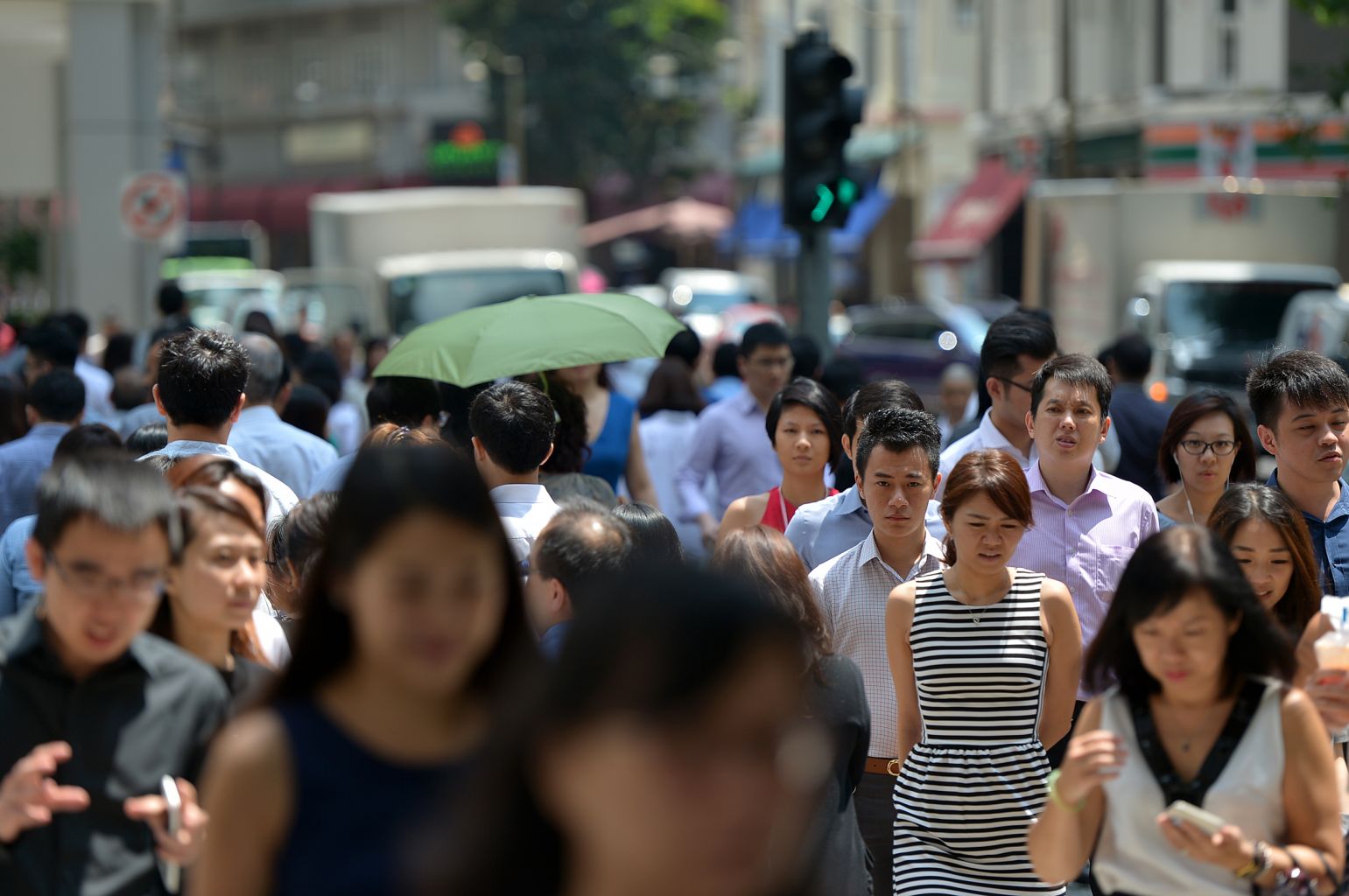
An office crowd in Singapore's Central Business District.
ST PHOTO: JAMIE KOH
As technology rapidly transforms the way we live, it will also transform how we work.
The Singapore economy expanded 3.5 per cent last year - more than double the initial forecasts.
However, the picture for 2018 is slightly different. As more risk factors are taken into account, the economy is expected to expand between 1.5 per cent and 3.5 per cent overall, slower than 2017.
On top of that, about 24 per cent of work activities in Singapore could be displaced by 2030, according to consulting firm McKinsey & Company.
Wholesale trade, infocomm and media, healthcare, financial services and professional services have been identified by the Government as the sectors likely to be the most affected by disruptive technology, although they have tremendous potential for job growth.
Slower growth, coupled with digital disruption that will make several jobs obsolete, paints a somewhat uncertain picture for the future of jobs in Singapore.
Fortunately, the Government has planned reforms for 23 sectors, which account for 80 per cent of the economy.
Named Industry Transformation Maps (ITM), they are meant to lift productivity and help companies in those sectors become more competitive. Fifteen of the 23 ITMs have been launched so far, in areas ranging from food manufacturing to financial services.
Here's a look at some of the sectors that will be hiring the most young professionals in coming years:
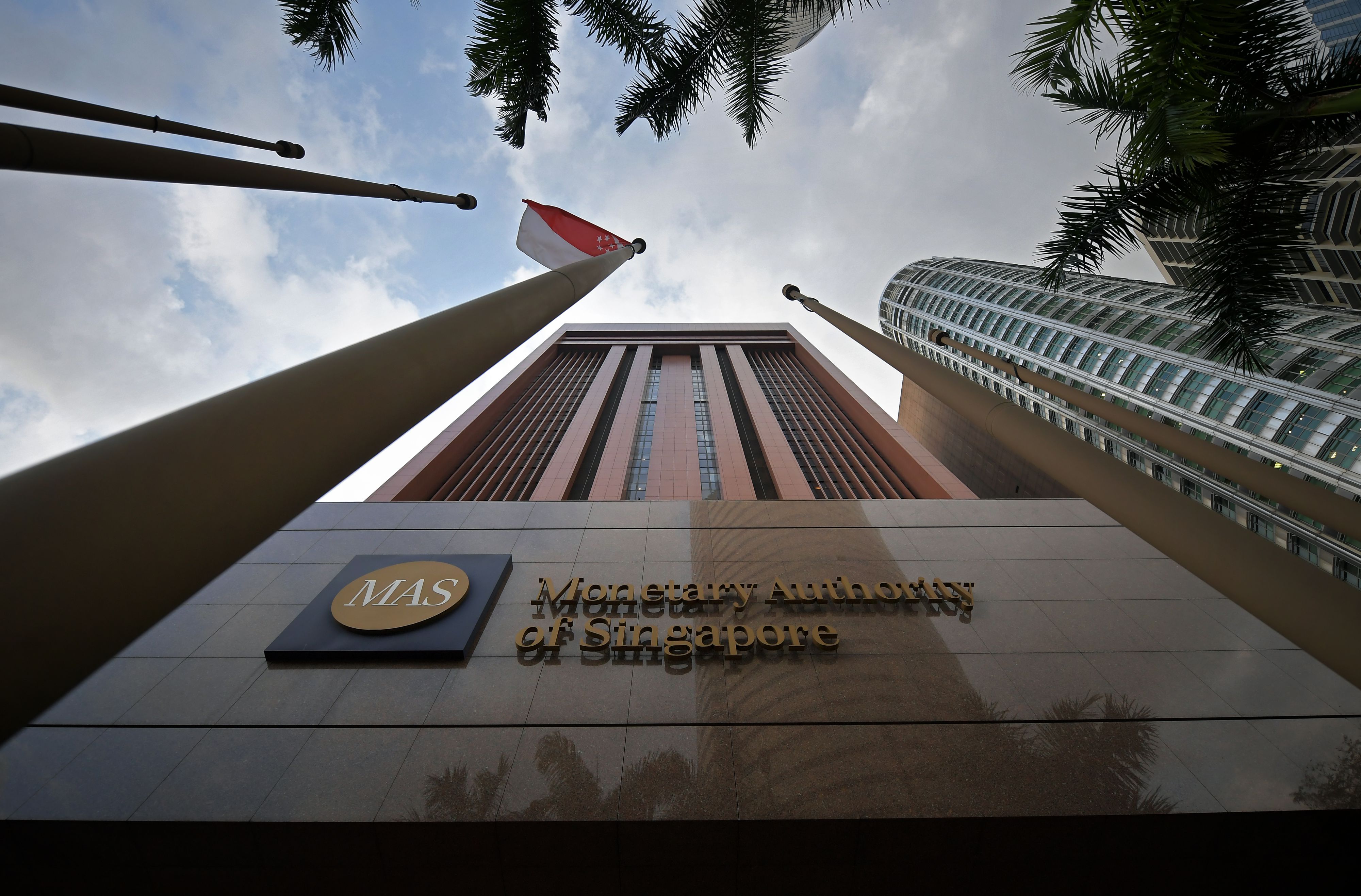
The Monetary Authority of Singapore (MAS) building in Shenton Way on 29 March 2017.
PHOTO: ST FILE
Finance (October 2017): The finance road map is targeting the creation of 3,000 net jobs annually, with another 1,000 in fintech alone.
Singapore aims to become a leading global financial centre in Asia.
To achieve this goal, the ITM includes strengthening cyber resilience of financial institutes, adopting digital technologies and skills, deepening specialist skillsets for both new entrants as well as professionals, managers, executives and technicians (PMETs) and expanding cross-border web cooperation agreements.
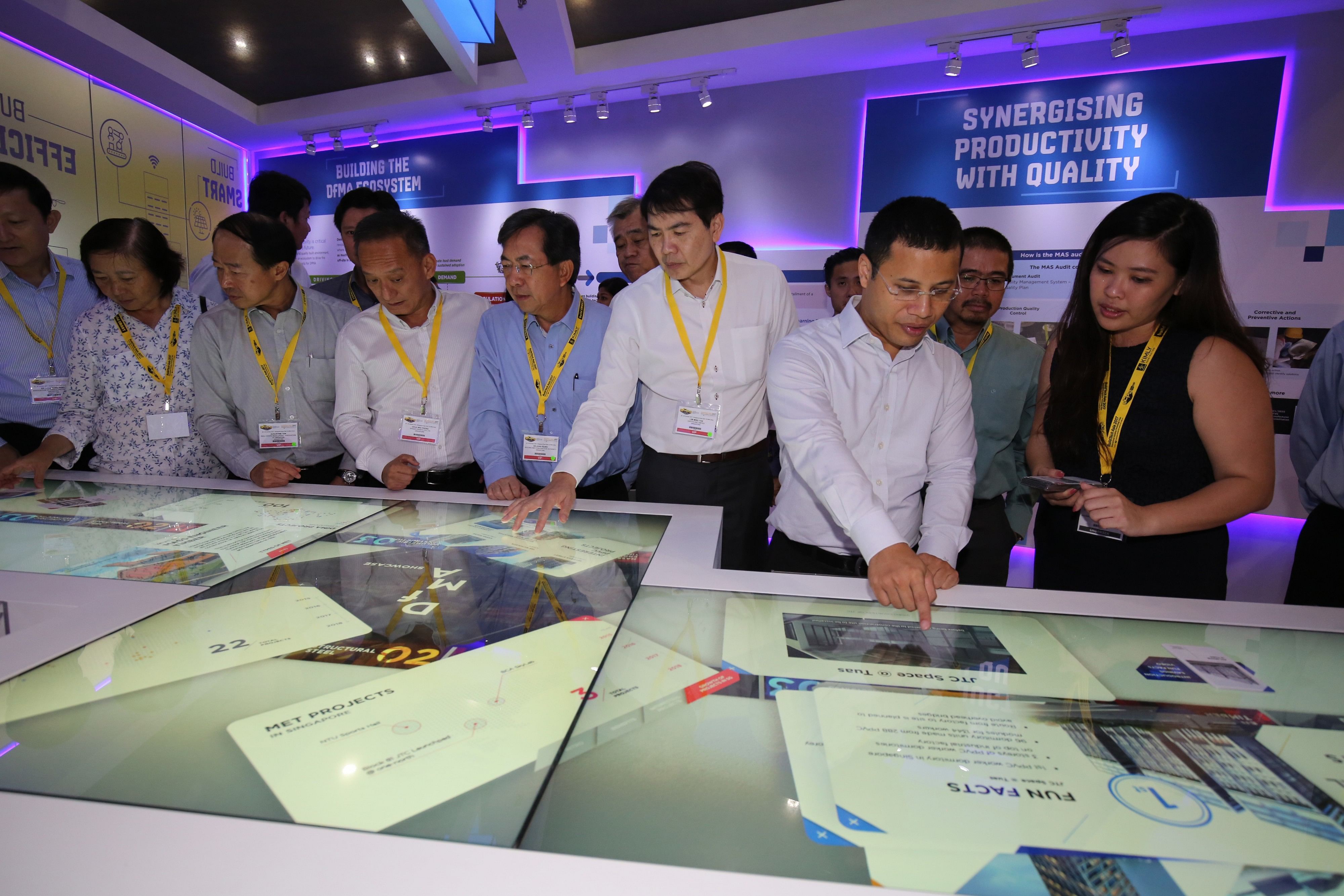
Construction (October 2017): The entire sector will be transformed, from end to end, to become technologically advanced, prioritising productivity and innovation over manual work.
The Building and Construction Authority (BCA) targets to have 80,000 personnel trained in those cutting-edge technologies to enter the industry by 2025. There are currently 32,600 trained in these areas.
Wholesale Trade (September 2017): Some 10,000 more positions are set to be added by 2020. The ITM includes strategies to build our own digital marketplaces, grow a vibrant ecosystem of wholesale traders in Singapore and build talent pipeline to support the transformation.
Skills in demand for this sector will include familiarity with business regulations, data analytics, e-commerce, pricing strategy, risk management and trade financing instruments, among others.
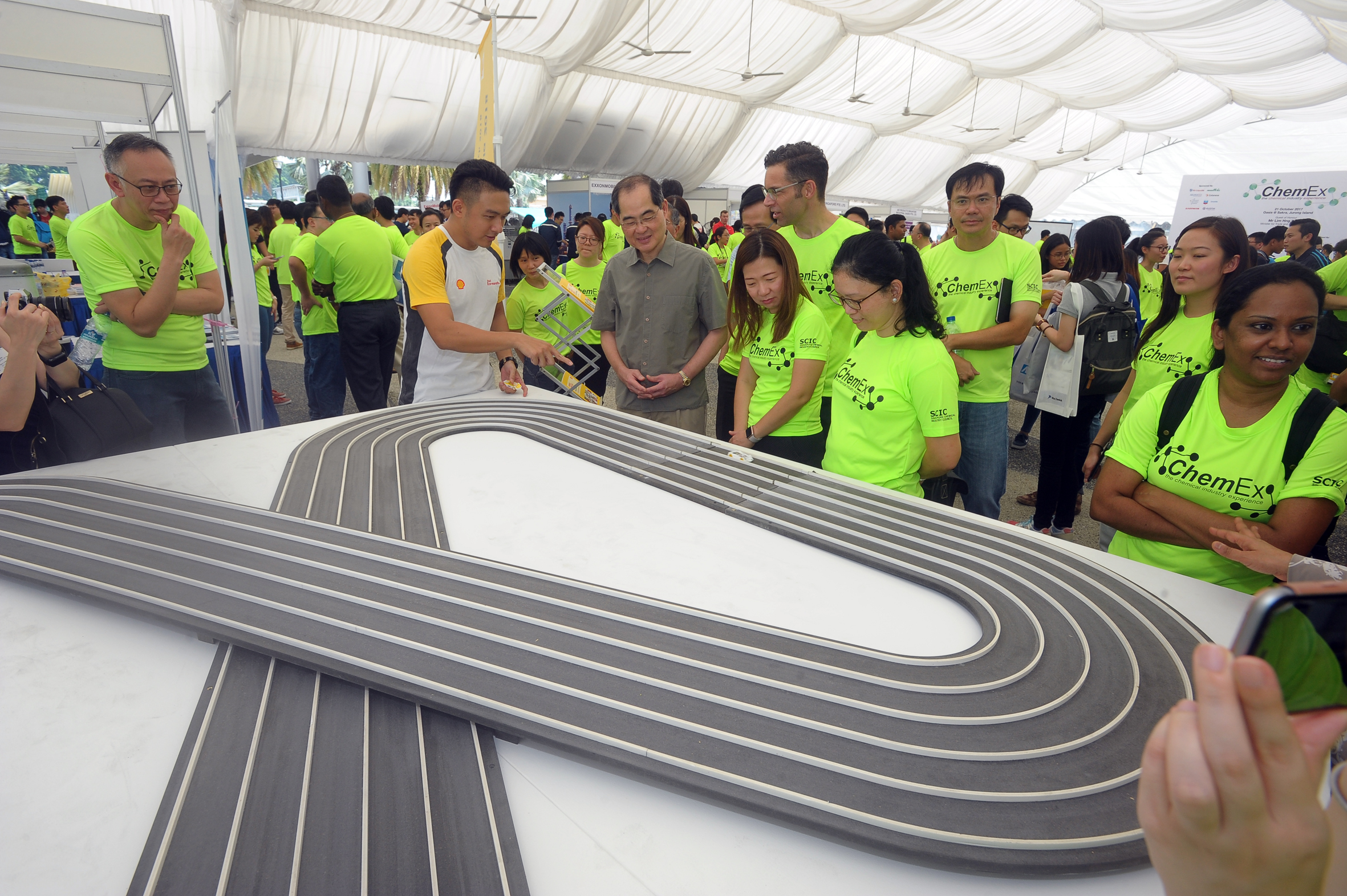
Energy & Chemicals (October 2017): The road map for energy and chemicals aims to create 1,400 new jobs by 2025.
Innovation will be a key driver of the two-pronged strategy, which is to adopt advanced manufacturing technologies across the industry and to build capabilities, such as applied research or novel platform strategies.
The aim of building such capabilities is to accelerate innovation and shorten the go-to-market process.
Infocomm Media (November 2017): This sector will witness the creation of 16,000 jobs by 2020, according to plans in the new road map.
Most of these are expected to be PMET roles in four frontier areas: cybersecurity, Internet of Things, immersive media, and artificial intelligence (AI) and data science.
The Info-communications Media Development Authority (IMDA) will be investing in infrastructure building and manpower training in these four areas, starting with AI.
Specifically, the sector's value-add is expected to grow at 6 per cent annually, almost twice as fast as the overall economy, and employing a total of 210,000 workers by 2020.

Electronics Manufacturing (September 2017): The new road map aims to create 2,100 new jobs for PMETs by 2020.
Its two-pronged strategy includes diversifying into new growth opportunities and getting the existing base of manufacturers to embark on a digital transformation.
The vision for one of the best performing sectors of this year includes building smart factories of the future.
According to Minister for Trade and Industry (Industry) S. Iswaran, the electronics industry has been and will continue to be a key sector of growth for Singapore's economy.
The future of other sectors

Tourism (November 2017): With the adoption of more innovative technologies, there will eventually be less need for labour in the forms of chefs (to cook eggs at breakfast buffets), receptionists (check-in) and chambermaids (transporting laundry within hotels).
Law (January 2017): The Singapore Academy of Law (SAL) has a five-year plan to digitalise the law scene.
Law SMEs will receive funding to adopt new technologies that enhance their efficiency in day-to-day tasks.
The plan also includes setting up virtual platforms and workspaces for law firms and working with other industries to create new legal technologies.
Logistics (November 2016): The logistics transformation is set to add $8.3 billion in value to the sector and create 2,000 jobs for PMETs by the end of the decade.
The Government will invest in next-generation facilities, develop world-class capabilities in the logistics and supply chain management space and continue promoting Singapore as a choice base for supply chains.
Precision Engineering (October 2016): The precision engineering ITM aims to propel the sector's output to $42 billion by 2020 (from $32 billion in 2014) by building more smart factories, investing in new technologies and preparing workers for the future.

Social Service (July 2017): The social service sector hopes to have a wide and long-ranging impact on the entire nation.
Plans include having organisations partner charities to identify problems and solutions, improving career pathways for those in the sector, collaborating in sharing databases of vulnerable groups and using technology to encourage social innovation.
Human Resources (July 2017): Training, internship and certification opportunities to boost HR capabilities are available for HR employees.
An online resource portal for businesses and employers will also be available soon, on top of existing mentorship programmes and free advice provided by volunteer HR directors.
HR service providers can also offer ways for small and medium-sized enterprises to outsource some HR operations and use more technology.
Maritime (September 2017): As Singapore works to establish itself as a global maritime standard-bearer, those interested in working in this industry will have to be prepared to be part of a multi-skilled workforce with a global mindset.
The sector seeks to strengthen the quality of education and training and further enhance standards of professionalism.
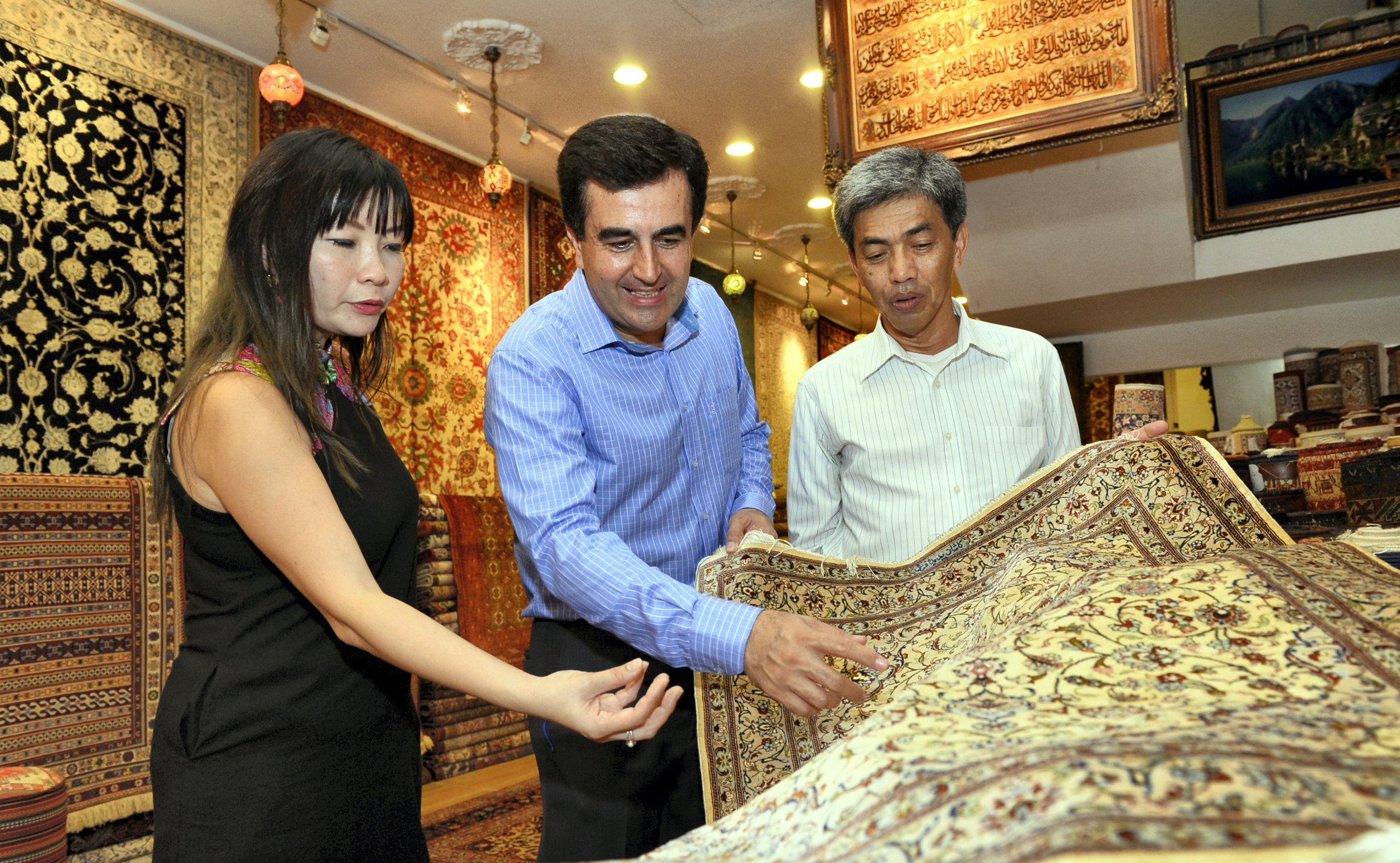
Retail (September 2016): To encourage more retailers to go online, the Government will identify possible online platforms that small and medium-sized enterprises (SMEs) can use.
Firms can also use e-commerce to reach out to consumers overseas and internationalise their business or pilot emerging technologies, such as one by furniture giant Ikea which allows customers to virtually place and view some 400 products in their own homes, through augmented reality.
Relevant agencies will also conduct master classes where retailers can learn how to adopt manpower-lean models, or pick up web analytics skills.
Engineering (April 2016): The public sector will boost the salaries of its engineers and provide them with a clear road map of career advancement, in a bid to attract and retain talent.
The starting pay of engineering graduates will be 20 per cent higher on average.
In addition, seven public agencies, including the Housing Board and national water agency PUB, will develop "competency frameworks" to outline skills needed by engineers as they advance in their careers.

Environmental Services (December 2017): In the coming years, as part of the industry's transformation, people might see robots cleaning and disinfecting, or older cleaners donning exo-skeletons to give them extra support as they work. Toilets may have sensors to track the level of ammonia or floor tiles that can neutralise the smell of urine.
On a larger scale, funds for research and development in recycling and the development of robots for cleaning waste have been launched.
A new part-time diploma in cleaning and waste management was launched this year to upskill workers and meet growing manpower needs.
Food & Beverage (November 2016): The sector aims to improve growth without any increase in manpower over the next five years.
Its key features include: developing innovative formats like Ready-to-Eat meals; promoting mass adoption of manpower-lean technologies; raising employees' skills and versatility, and expanding the footprint of Singapore's F&B companies in overseas markets.
Its key features include: developing innovative formats like Ready-to-Eat meals; promoting mass adoption of manpower-lean technologies; raising employees' skills and versatility, and expanding the footprint of Singapore's F&B companies in overseas markets.
yipsjk@sph.com.sg


